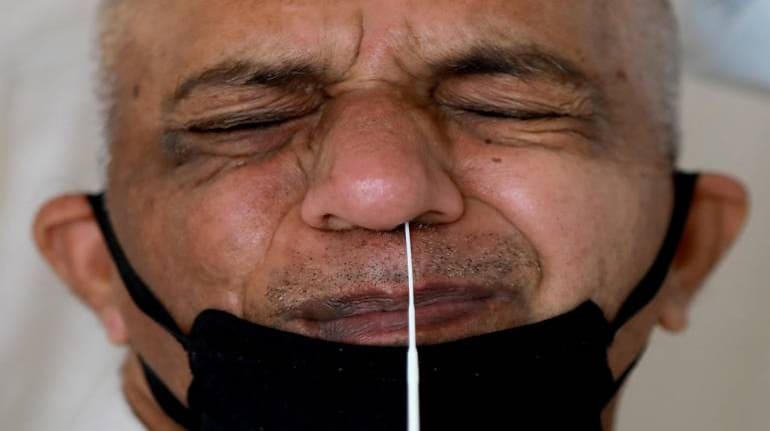



Scientists, including those of Indian-origin, have provided the first extensive review of COVID-19's effects outside the lungs, and have recommended that physicians treat it as a multisystem disease with manifestations including blood clots, kidney failure, and neurological symptoms like delirium. "I was on the front lines right from the beginning. I observed that patients were clotting a lot, they had high blood sugars even if they did not have diabetes, and many were experiencing injury to their hearts and kidneys," said Aakriti Gupta, a co-author of the study from Columbia University in the US.
According to the review of studies, published in the journal Nature Medicine, a substantial proportion of COVID-19 patients suffer kidney, heart, and brain damage.
The researchers recommended that doctors treat these conditions along with the respiratory disease.
"Physicians need to think of COVID-19 as a multisystem disease," Gupta said.
One of the non-respiratory complications most reported by studies is blood clotting, according to the researchers.
They said these clotting complications may stem from the virus' attack on cells that line the blood vessels.
The scientists explained that when the virus attacks blood vessel cells, inflammation increases, and blood begins to form clots, big and small.
These blood clots, according to the study, can travel all over the body and wreak havoc on organs, perpetuating a vicious cycle of inflammation.
"Scientists all over the world are working at an unprecedented rate towards understanding how this virus specifically hijacks the normally protective biological mechanisms. We hope that this would help in the development of more effective treatments for COVID-19 in the near future," said Kartik Sehgal, another co-author of the study from Harvard Medical School in the US.
According to the researchers, the formation of clots can lead to heart attacks.
However, they said the exact mechanism of heart damage in COVID-19 patients is currently unclear since the virus has not been frequently isolated from the heart tissue in autopsy cases.
The researchers believe the heart muscle may be damaged by systemic inflammation, and the accompanying release of immune system's signalling molecules, cytokines.
They said a flood of the cytokines which normally clear up infected cells can spiral out of control in severe COVID-19 cases.
Another surprising finding, according to the scientists, is the high proportion of COVID-19 patients in the ICU with acute kidney damage.
They said the ACE2 receptor molecule which is used by the virus to gain entry into human cells is found in high concentrations in the kidney, and could likely be responsible for the renal damage.
In New York City in the US, the scientists said, renal failure was reported in up to 50 per cent of patients in the ICU.
"About five to 10 per cent of patients needed dialysis. That's a very high number," Gupta said.
Describing the neurological symptoms of COVID-19, the researchers said these include headache, dizziness, fatigue, and loss of smell, which may occur in about a third of patients.
They said strokes caused by blood clots was observed in up to six per cent of severe cases, and delirium in eight to nine per cent of COVID-19 patients.
"COVID-19 patients can be intubated for two to three weeks: a quarter require ventilators for 30 or more days," Gupta said.
"This virus is unusual and it's hard not to take a step back and not be impressed by how many manifestations it has on the human body," said Mahesh Madhavan, another co-author of the study from Columbia University.
Discover the latest Business News, Sensex, and Nifty updates. Obtain Personal Finance insights, tax queries, and expert opinions on Moneycontrol or download the Moneycontrol App to stay updated!
Find the best of Al News in one place, specially curated for you every weekend.
Stay on top of the latest tech trends and biggest startup news.